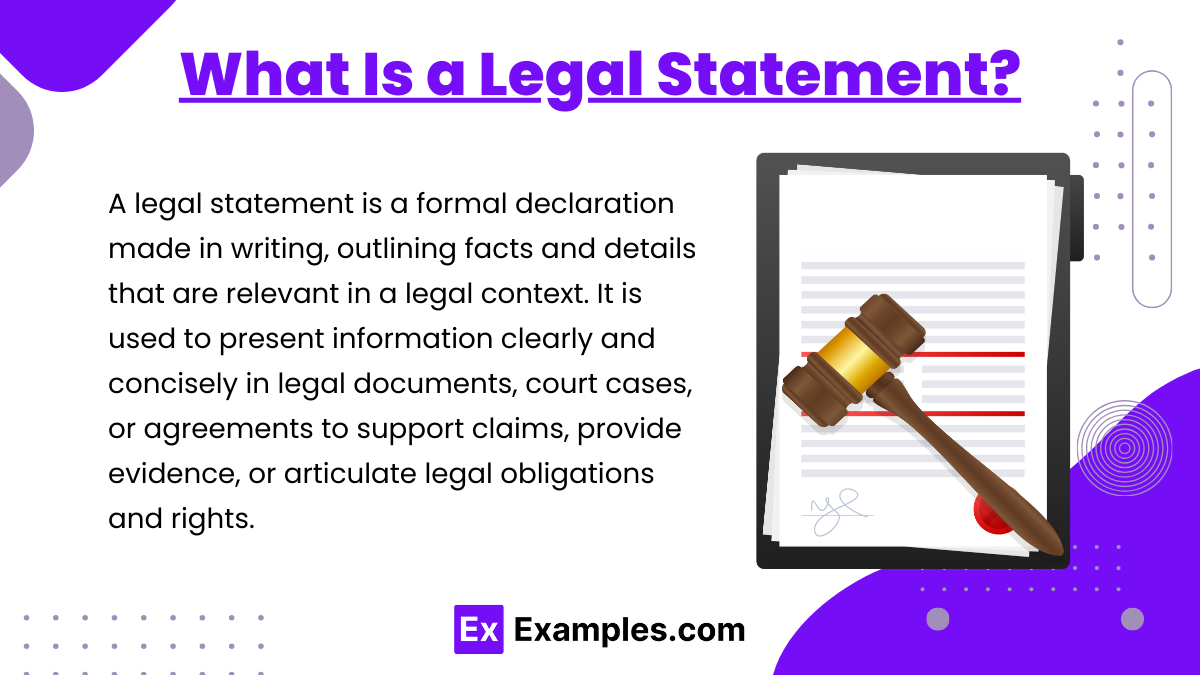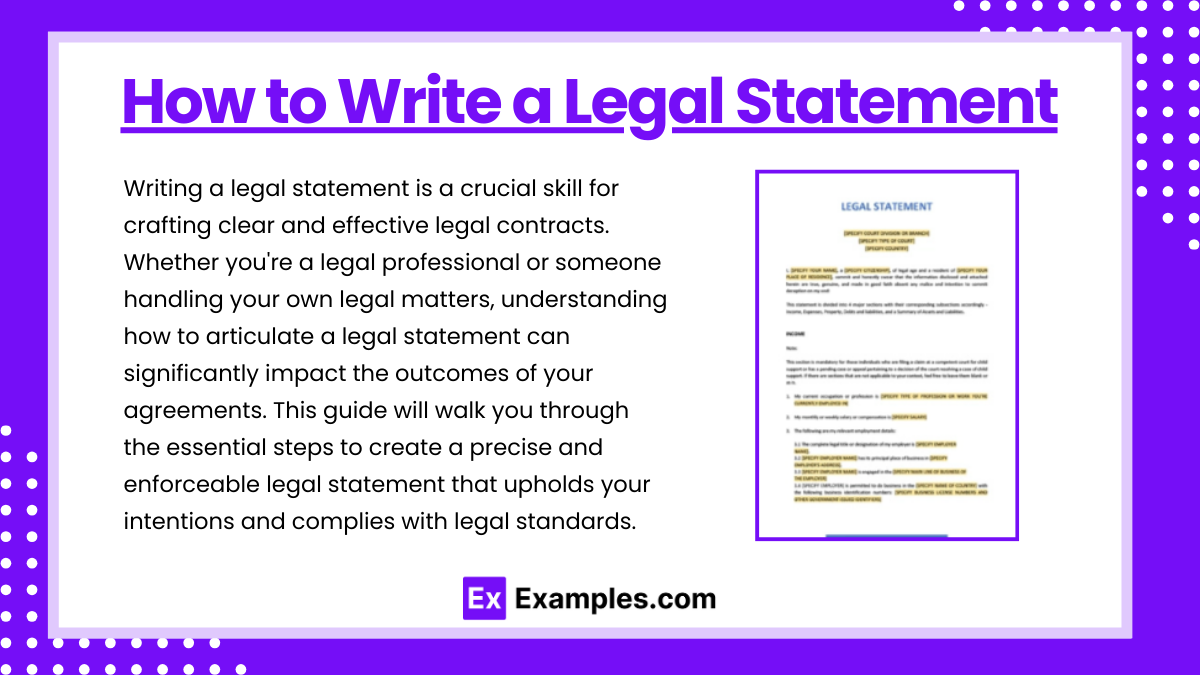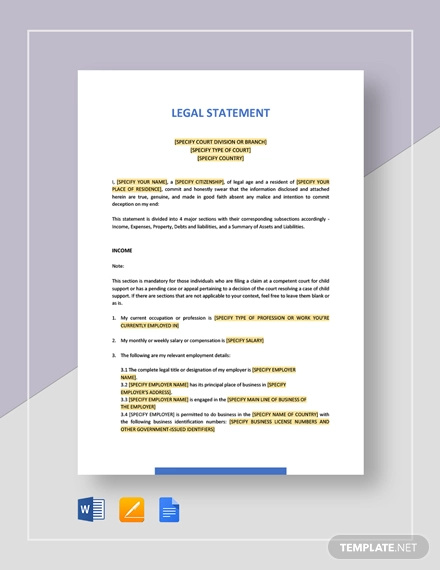How To Write A Legal Statement?
Writing a legal statement is a crucial skill for crafting clear and effective legal contracts. Whether you’re a legal professional or someone handling your own legal matters, understanding how to articulate a legal statement can significantly impact the outcomes of your agreements. This guide will walk you through the essential steps to create a precise and enforceable legal statement that upholds your intentions and complies with legal standards.
What Is a Legal Statement?

Legal Statement Example
Coming Up with Effective Legal Statements
Now comes the part where we learn how to write a formal statement letter. While it’s true that one can always download a legal statement letter template, such as the legal statement template above, there are those who would want to know how to draft legal statements from scratch. Consulting an attorney is often a must, but following these tips can still serve you well:
Tip 1: Keep its Purpose in Mind
First, you have to be aware of the purpose of the legal statement. Determining the results that you would like to achieve can help you write an effective legal statement that will work to your advantage. Also, be aware of the specific activity where you will use the legal statement. This way, your legal statement can precisely identify the details that are necessary to help you to attain the result that you would like to gain.
Tip 2: Never Neglect the Small Details
It is important for you to specify the date when the legal statement has been formulated. Place this on top of the document so that legal entities who will review the legal statement can be aware of its date of creation. Other details you must never forget is your name, the location, and your affixed signature.
Tip 3: Be as Specific as Possible
It is important for you to clearly identify the details pertaining to the parties involved or specified in the statement. Be precise with their involvement in the process. As much as possible, break down the details that you would like to discuss. The more relevant information you can provide, the better.
Tip 4: Review and Provide Support
Review your statement letter with regard to the legal issue. Assess whether these statements are strong enough to be used. Depending on the statements that you have provided, attach the documents which you think can be solid pieces of evidence that you have specified in your legal statement are accurate and true.
How to Write a Legal Statement

- Identify the Purpose:
- Determine the reason for the statement, such as providing evidence, explaining an incident, or supporting a legal claim.
- Gather Information:
- Collect all necessary details about the incident or situation you are describing. This includes dates, times, places, and names of people involved.
- Outline the Statement:
- Organize the information chronologically or by relevance to make the statement coherent and logical.
- Write a Draft:
- Begin with a clear introduction stating the purpose of the statement.
- Present the facts in a straightforward manner, avoiding opinions or emotional language.
- Use clear, concise, and formal language appropriate for a legal document.
- Be Specific and Detailed:
- Provide specific details to support each fact. Include exact dates, times, and other relevant data.
- First-Person Narrative:
- Write in the first person, using “I” to describe your observations and experiences directly.
- Review for Accuracy:
- Re-read the statement to ensure all information is accurate and complete. Verify facts, dates, and other details.
- Sign the Statement:
- Conclude with a statement of truth, affirming under penalty of perjury that the information is true and correct.
- Sign and date the document.
- Witness Verification (if required):
- Have a witness or notary public sign the document to verify its authenticity.
- Keep Records:
- Retain a copy of the signed statement for your records and provide the original to the necessary legal authorities or involved parties.
FAQs
Why is it important to write a legal statement?
Legal statements provide essential factual information that supports legal proceedings or contract agreements.
Who can write a legal statement?
Anyone can write a legal statement, but it may be advisable to consult with a legal professional to ensure accuracy and compliance.
What should be included in a legal statement?
Include only pertinent facts, supporting evidence, and a clear outline of events or obligations as they relate to the legal matter.
How should facts be presented in a legal statement?
Present facts in a straightforward, chronological order, ensuring clarity and ease of understanding for legal purposes.
Can a legal statement be modified?
A legal statement can be modified before final submission, but changes should be carefully considered to maintain accuracy and relevance.



